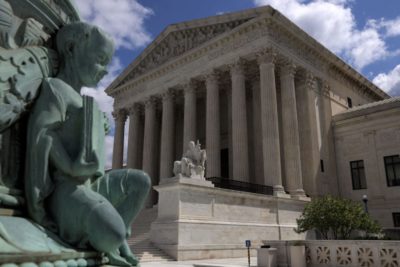The United States Supreme Court has granted a reprieve to the State of Illinois’ nearly 42,000 DACA recipients. Just under 800,000 individuals have signed up and received approval for the federal Deferred Action for Childhood Arrivals (DACA) program since its inception in 2012. To be eligible for the program, one must have arrived to the U.S. before turning age 16 and meet education and other related requirements. Under the DACA legislation in its original form, recipients are protected from deportation after 2 years, after which they must file for renewal until they can gain legal U.S. Citizenship. Cass, Schuyler, and Sangamon Counties are home to the largest DACA recipient population in West Central Illinois.
Illinois is one of three states in the country that has the largest concentration of DACA recipients. The City of Chicago has the fifth largest DACA recipient population for municipalities in the U.S. Today, the U.S. Supreme Court ruled in a 5-4 opinion that the Trump Administration in September 2017 improperly shuttered the program. Chief Justice John Roberts sided with the 4 liberal bloc justices saying that the administration did not go through proper procedural requirements or provide a reasonable explanation for closing the program. Roberts did leave the door open for the Trump Administration to provide adequate reasons and proper procedures to shutter the program at some point in the future.
In the dissenting opinion of the court, Justice Clarence Thomas accused the majority decision of being swayed by sympathy and politics in the current climate. Thomas and Justice Brett Kavanaugh decried the majority decision, opening the court up to future decisions on the matter should the legality of the program be pursued with more robust explanations and requirements to end the program.
Illinois Senator Dick Durbin, who has been an advocate for DACA recipients, is expected to address the decision on the Senate floor today. Durbin has been trying to introduce legislation to create an easier path to citizenship as well as extended protections for DACA recipients, called Dreamers, since the Trump Administration’s announcement that it was planning on deportation for the nation’s nearly 800,000 DACA recipients during his administration.
The court’s ruling means the Trump Administration officials will have to provide a lower court with a more robust justification for ending the program. That process is likely to take many months, which would postpone policy decisions until after the November general election.




